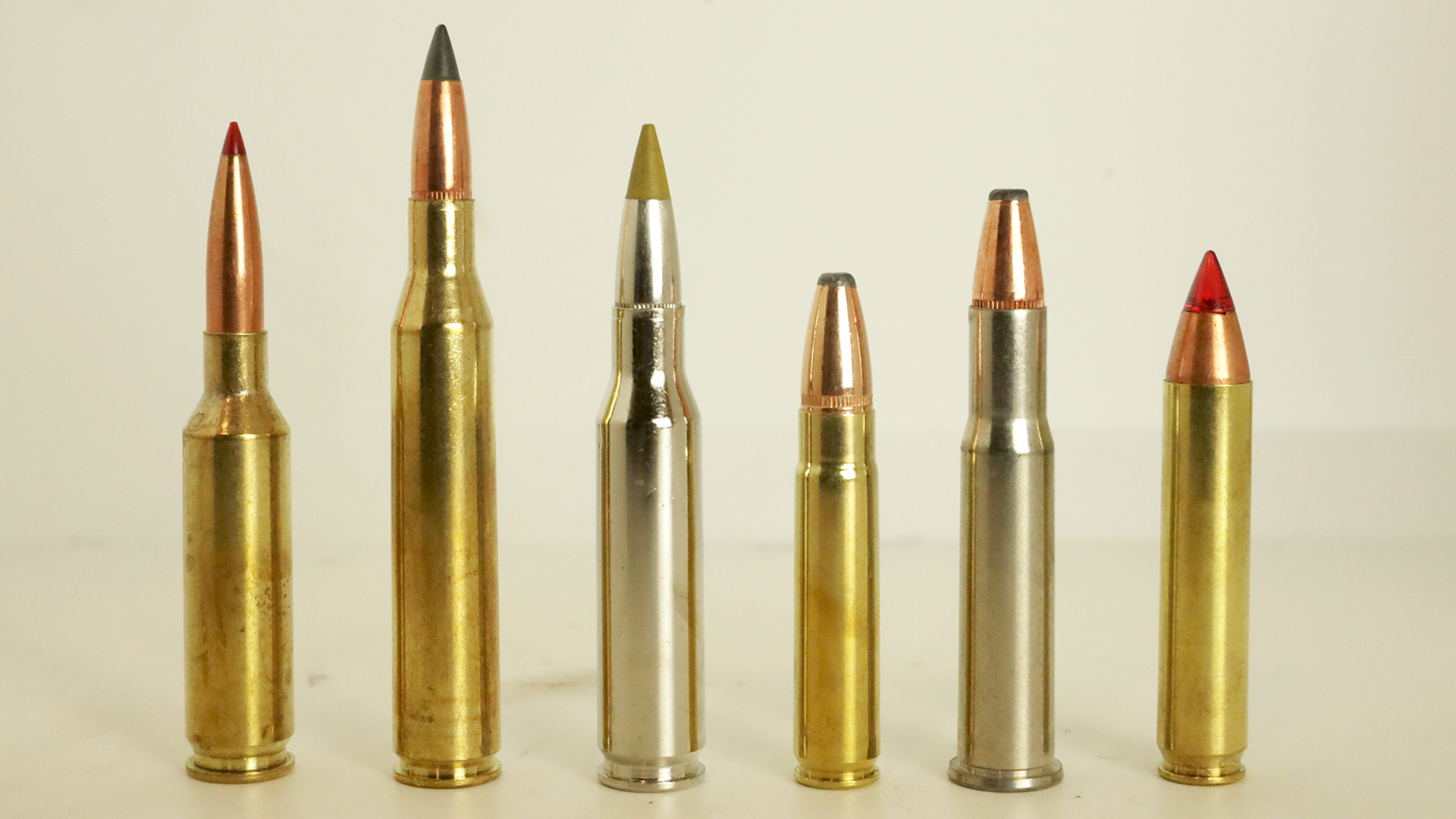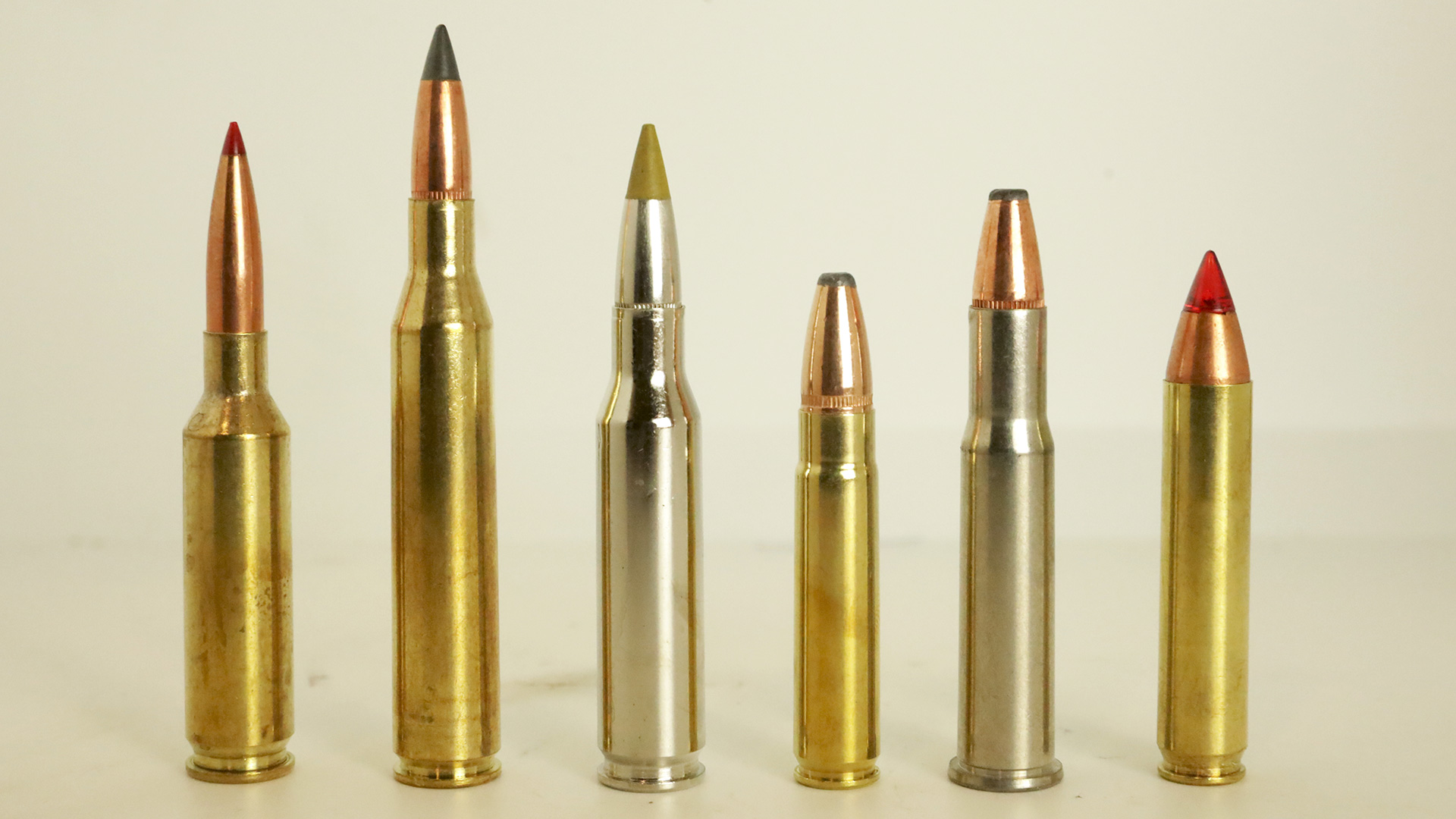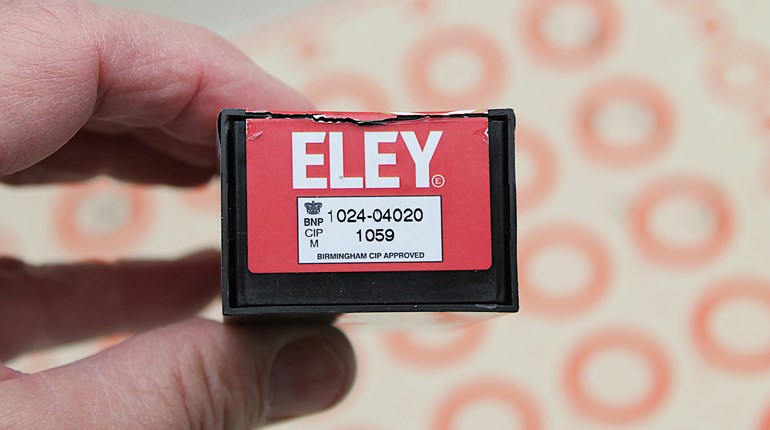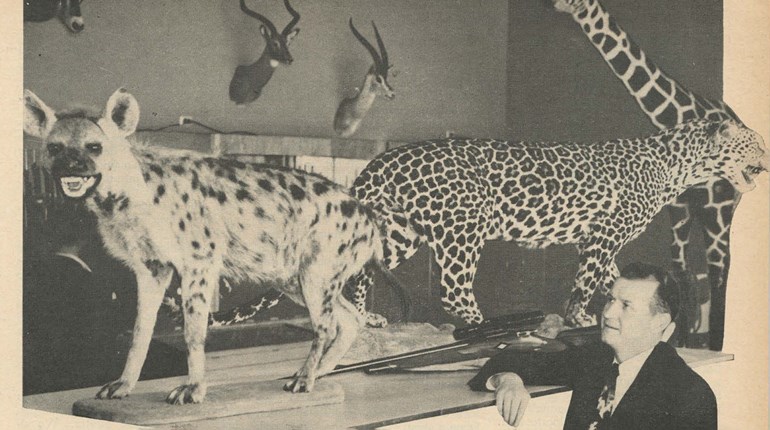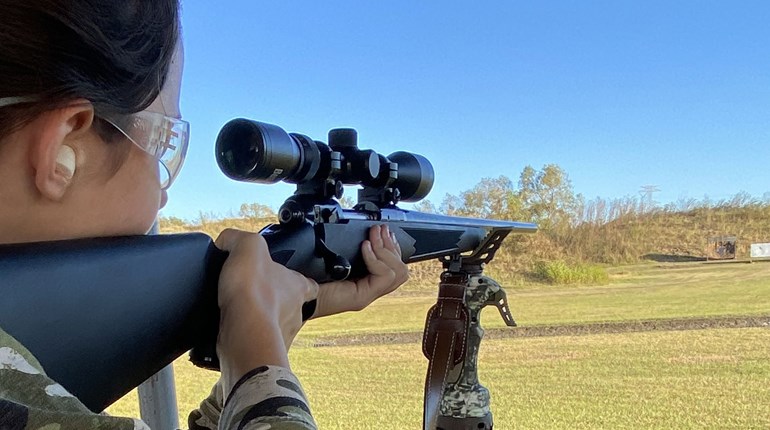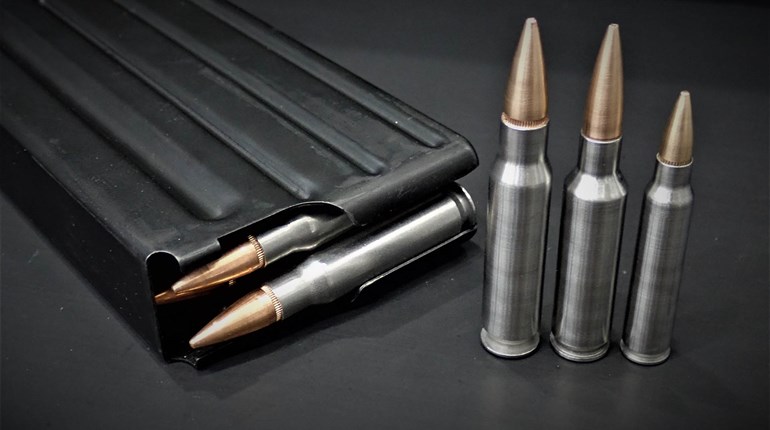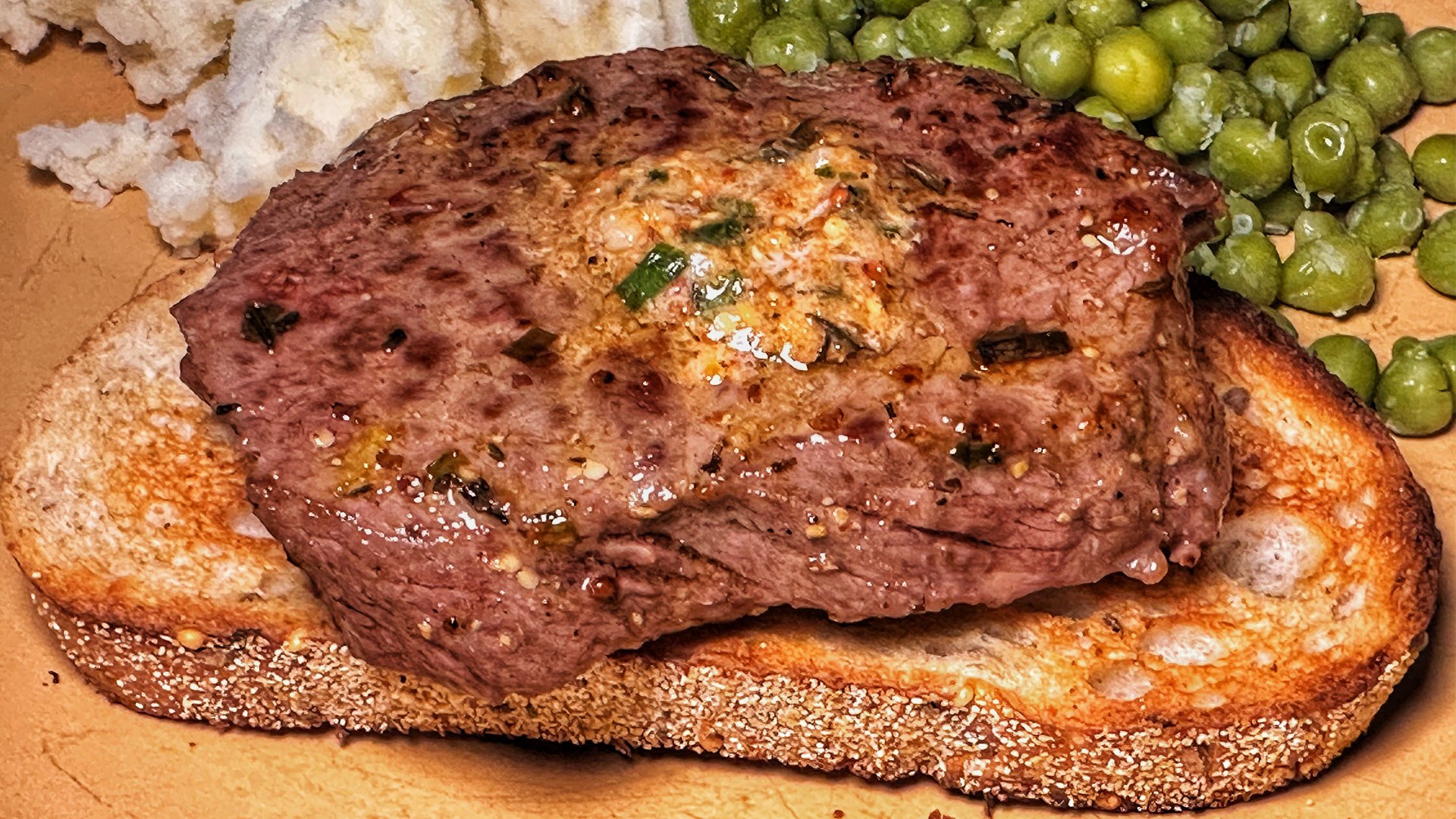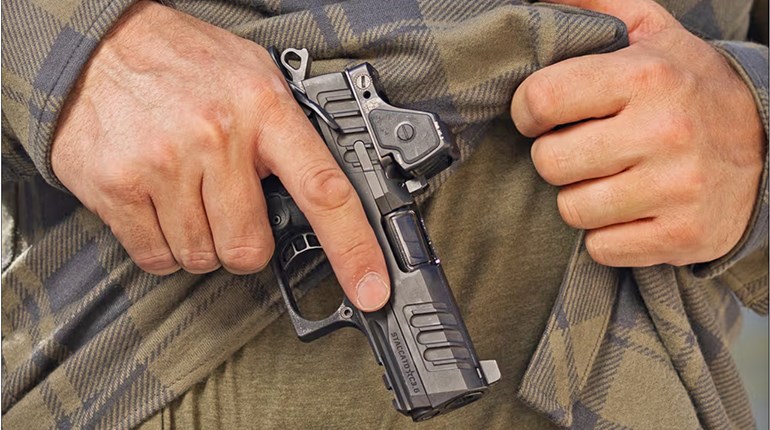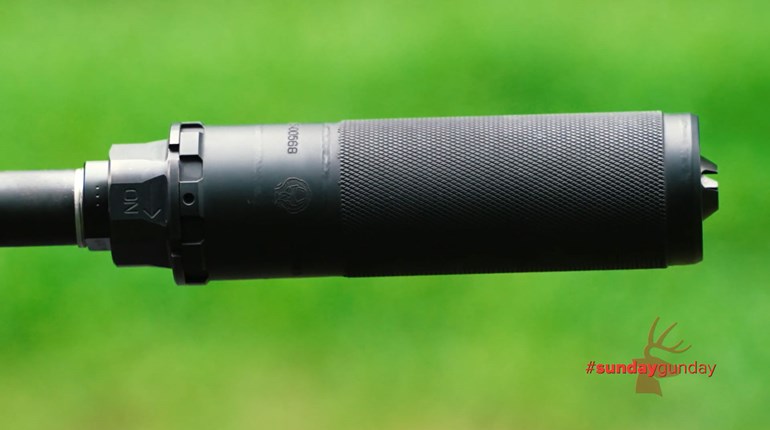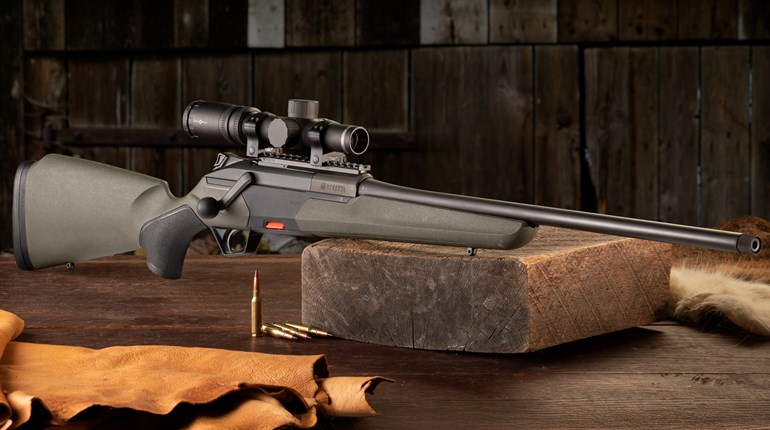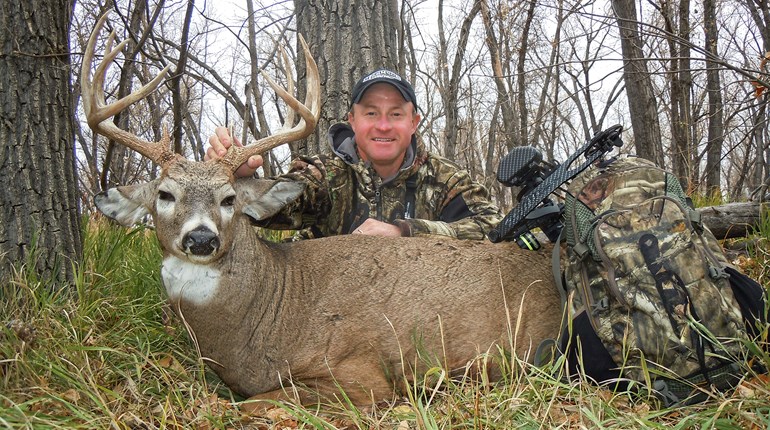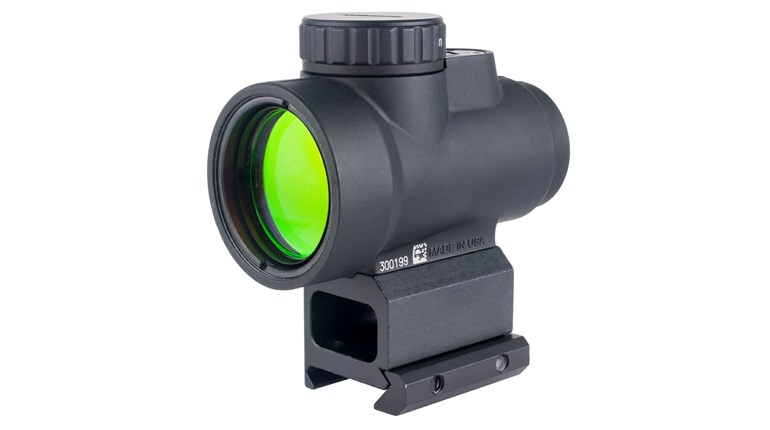
If you live in a state which mandates straight-walled rifle cartridges for deer hunting, or if you just like the simplicity of a straight-walled cartridge, there are many available choices. Some are new, some are old, but all need to adequately take a deer in the terrain you hunt. Let’s take a look at my top seven choices for a straight-walled deer cartridge.

1. .45-70 Government
Starting with the oldest first, the .45-70 Government has survived all sorts of technological advances in cartridge design, yet still gets the job done. Vintage rifles can be challenged in the metallurgy department, but the modern guns are built tough as nails. Even the mild loads designed for the older rifles—driving a 405-grain bullet at 1350 fps or so—will handle any whitetail that ever walked, if you stay within suitable ranges. Look at Hornady’s LeveRevolution line, with its 250-grain MonoFlex spitzer bullet with pliable tip, cruising at 2050 and you’ll see a much flatter trajectory. In fact, when zeroed at 200 yards, this load hits 3 inches high at 100 yards, and drops 36 inches at 300 yards. This breathes new life into the old cartridge, and assuredly gives an unprecedented flat trajectory. If you like to stay in the woods, Federal’s HammerDown ammo will surely put the venison in the freezer, with a 300-grain bonded bullet at 1850 fps. With a 100-yard zero, you’ve got a dead hold to 130-yards or so. I used a sweet Heym over/under rifle in .45-70 to take a Catskill Mountain buck with one well placed shot.

2. 360 Buckhammer
Now, to the newest of the lot. Remington introduced the 360 Buckhammer at the 2023 SHOT Show, and it offers the .358-inch-diameter bullets that fans of the 35 Remington adore, but in a rimmed, straight-walled case. That case measures 1.800 inches, with a cartridge length of 2.50 inches, designed to adhere to the regulations of many of the Midwestern states. The 360 Buckhammer sends a 180-grain bullet from the muzzle at 2400 fps, and a 200-grain bullet at 2220 fps, bettering the performance of the .30-30 Winchester, with a bullet with better frontal diameter. It has shown to be effective out to 200 yards, and is available in a number of Henry lever-action rifles, as well as their break-action single shot. Field reports have all been favorable, and so long as Big Green keeps ammunition on the shelves, I’d bet the 360 Buckhammer is going to become a fast favorite.

3. .444 Marlin
Here’s a mid-20th century release from Marlin, designed in conjunction with Remington, to fill the void left by the (then) fading .45-70 government. The result of their efforts was what might be considered an elongated .44 Magnum case, which would push the same .429-inch-diameter bullets, but to a muzzle velocity of 2350 fps. The case length comes in at 2.225 inches, with an overall cartridge length of 2.55 inches. This additional capacity gave the .444 Marlin a velocity advantage of nearly 500 fps over the .44 Remington Magnum, though there were some complaints about using bullets designed for pistol velocities. Over time bullet weight was increased (a 265-grain load was offered), and the bullets beefed up. My great-uncle Mick DeCheck used this cartridge in his Model 336 Marlin lever gun, and never had an issue with the cartridge. Though rifles have become a rarity of late, ammo is available from Hornady, Federal Premium, Remington, and Buffalo Bore, so should you find a good 336 so chambered, you’ll have option to feed it.

4. 350 Legend
Here we have Winchester’s 2019 release, being a definite attempt to give those hunters in the “straight-wall” areas an advantage in trajectory. Sharing many dimensional characteristics with the 223 Remington and its relations (though Winchester claims no parent case), the 350 Legend is equally at home in a bolt action rifle as it is in the AR platform. Using bullets reportedly of .358-inch-diameter (some have measured .355 inches) and a case length of 1.71 inches, with a cartridge overall length of 2.25 inches, the 350 Legend drives a 160-grain bullet to 2325 fps and a 180-grain bullet to 2100 fps, giving the deer hunter a respectable trajectory in a package which is easy on the shoulder. The 180-grain load will maintain 1,000 ft.-lbs. of energy to 150 yards, and when zeroed at that distance will strike 5.5 inches low at 200 yards. It has become quite popular among deer hunters, and would make a great woods cartridge here in the Northeast.

5. .38-55 Winchester
Here is an undeniable classic, a quintessential American cartridge, even if it might seem anemic by modern standards. Released in 1884, the 38-55 was one of the initial offerings in Winchester’s soon-to-be-famous Model 1894, and has the distinction of being the parent case of the 30-30 Winchester, 32 Winchester Special and the 375 Winchester. It is a rimmed case, with a length of 2.085 inches and a cartridge length of 2.51 inches. It is not a speed demon by any stretch, driving the 255-grain bullets to a muzzle velocity of somewhere between 1,300 fps for those loads mimicking the original 19th century formula, to 1,950 fps in the +P configuration offered from Buffalo Bore. Like so many of the older cartridges, the vintage and model of the rifle will generally dictate what pressures are acceptable. Are there speedier, harder-hitting choices? Sure, there are. But sitting in the deer woods in the autumn, with a well-worn Winchester or Marlin rifle across your lap, chambered for a cartridge with such a special lineage is a great experience.

6. .44 Remington Magnum
While most certainly associated with the Smith & Wesson Model 29 revolver, Elmer Keith and even the fictional “Dirty” Harry Callahan of movie fame, the .44 Remington Magnum isn’t too shabby as a deer cartridge. Rifles like the Ruger Model 44 carbine, and the Winchester and Henry lever-action rifles allow the 44 Magnum to shine in the deer woods, at relatively short ranges. The .44 Magnum’s rimmed case measures a mere 1.285 inches, with a cartridge length of 1.61 inches, so a hunter can easily carry a goof number of cartridges with ease. Factory ammunition choices will feature bullets ranging from 200 grains all the way up to 340 grains, with all sorts of varying bullet constructions, from copper monometal to hard cast lead to traditional cup-and-core. Hornady offers their LeveRevolution treatment to the 44 Magnum—with a 225-grain FTX spitzer—and Federal has included it in the HammerDown line with a 270-grain bonded-core hollowpoint bullet running between 1700 fps and 1800 fps, making a great choice for the deer hunter who wants a light, handy rifle.

7. .405 Winchester
I’ll wrap things up with Theodore Roosevelt’s “medicine gun” for lions: the .405 Winchester. I’ve been amongst African lions, and while I’d never argue with TR, I will say I’d feel more comfortable using the .405 Winchester for deer and bear and would reach for my 404 Jeffery to sort out lions. Offered in the wicked-cool Model 1895 Winchester, with its box magazine, the original 405 Winchester load introduced in 1904 used a 300-grain, .411-inch-diameter bullet at 2200 fps, generating just over 3,200 ft.-lbs. of energy. While it was dropped from catalogs in 1955, the centennial of Roosevelt’s presidency saw Hornady reintroduce ammo and Winchester offer a reissue of the 1895 rifle. With a 100-yard zero, the 405 Winchester will hit 8.3 inches low at 200 yards, so shots should probably be kept inside of that distance, as it begins to drop off quickly, striking 30 inches low at 300 yards. But for a cartridge/rifle combination which has all sorts of nostalgia, having a Winchester 1895 in hand, chambered in .405 Winchester is pretty hard to beat.










